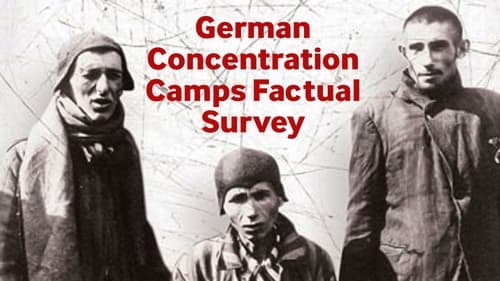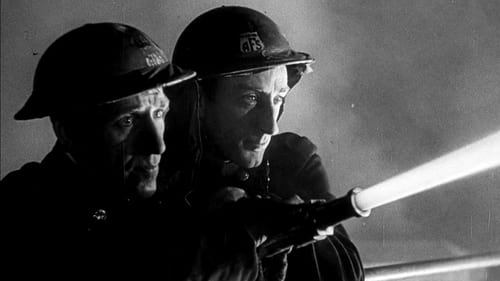Stewart McAllister
Birth : 1914-12-27, Wishaw, North Lanarkshire, Scotland, UK
Death : 1962-11-27

Editor
On the 29th September 1945, the incomplete rough cut of a brilliant documentary about concentration camps was viewed at the MOI in London. For five months, Sidney Bernstein had led a small team – which included Stewart McAllister, Richard Crossman and Alfred Hitchcock – to complete the film from hours of shocking footage. Unfortunately, this ambitious Allied project to create a feature-length visual report that would damn the Nazi regime and shame the German people into acceptance of Allied occupation had missed its moment. Even in its incomplete form (available since 1984) the film was immensely powerful, generating an awed hush among audiences. But now, complete to six reels, this faithfully restored and definitive version produced by IWM, is being compared with Alain Resnais’ Night and Fog (1955).

Producer
The work of a team of men who tackle a special British Road Services job in the treacherous terrain of the Scottish Highlands.

Producer
Through the forward-looking windows of the new diesel multiple-unit trains reveals a new world of signs, signals and railway sights to those who ride behind the driver. For children, particularly, find this is a fascinating experience. This film communicates something of their excitement and wonder as well as some of the wry, un-conscious humour with which their pertinent and amusing questions and comments are so often interlerded.

Producer
‘St Christopher’s - for the children of Railway Servants’. About a hundred children are cared for at this Derby railway orphanage and this film gives a selection of scenes from a typical day: the breakfast mail, a boy with a problem, a girl with a worry, a visit from two widowers, a birthday tea party. An official insight into a forgotten aspect of railway operation.

Producer
A short documentary.

Editor
In the cities of Britain we can travel in time as well as space. This film chooses the England of Hogarth, Gainsborough, Robert Adam and Captain Cook. As the camera moves across outstanding monuments of their work and relics of their achievements from Syon House to Greenwich, members of the Old Vic Company speak appropriate passages from the literature of the mid-eighteenth century. The musical score was specially composed by the late Sir Arnold Bax.

Associate Producer
Southampton, a deep-water port with four tides a day, is an ocean terminal for the world's largest liners. Their coming and going, and the people who work with them are the subject of this film as they reflect in their personal lives some of the drama and romance of its situation. Among them are a tug skipper and his crew, a stewardess on a Cape ship, an assistant wharfinger in charge of handling baggage and freight, a taxi driver, and a pilot taking a great liner down Southampton water at night.

Editor
In preparation for the celebration of the 1951 Festival of Britain, this short film was released to assure British citizens of their nation's place in the world and of their own places within that nation. Illustrative scenes of farming, science, political, and social life are juxtaposed to present a familiar and reassuring image of Britain.

Editor
Part of BFI collection "Tales From the Shipyard".

Editor
This brief documentary-style film presents the status of Great Britain near the end of the Second World War by means of a visual diary for a baby boy born in September, 1944. Narration explains to "Timothy" what his family, his neighbors, and his fellow citizens are going through as the war nears its end, and what problems may remain for new Englishmen like Timothy to solve.

Editor
The true story of the massacre of a small Czech village by the Nazis is retold as if it happened in Wales.

Editor
British film written and directed by Humphrey Jennings, filmed in documentary style showing the lives of firefighters through the Blitz in World War II.

Editor
A depiction of life in wartime England during the Second World War. Director Humphrey Jennings visits many aspects of civilian life and of the turmoil and privation caused by the war, all without narration.

Writer
A depiction of life in wartime England during the Second World War. Director Humphrey Jennings visits many aspects of civilian life and of the turmoil and privation caused by the war, all without narration.

Director
A depiction of life in wartime England during the Second World War. Director Humphrey Jennings visits many aspects of civilian life and of the turmoil and privation caused by the war, all without narration.

Editor
Poetry by Rudyard Kipling, John Milton, and William Blake, and excerpts from speeches by Abraham Lincoln and Winston Churchill, all read by Laurence Olivier, illuminate documentary footage of England during its defense against the Nazi blitz in World War II. This short film serves as both propaganda and as a rallying cry to the British people.













